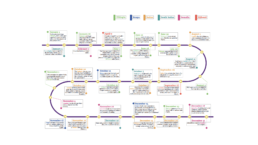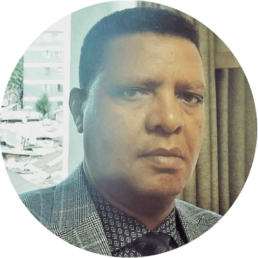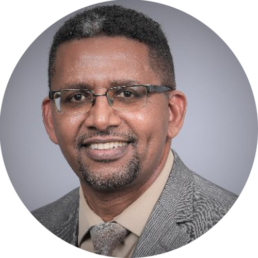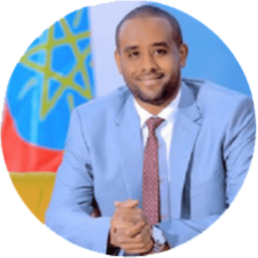Re-launching IGAD: Imagining a Decolonial Turn in the Horn of Africa
Month: December 2021
Yonas Ashine Demisse, PhD
Assistant Professor of Political Science and
International Relations
Addis Ababa University
Twitter : @yonniashine
The Horn of Africa is a geopolitical region that is often taken as a singular unit of analysis used to explain limitations, failures, intra and interstate security issues, and the plethora of societal calamities caused by political and economic instability. For many authors exploring the subject, geographical differences are considered a major determinant that challenged civilization and development, caused state collapses, and poverty. Historical writing has been influenced by such discourses of geographic determinism. Scholars reproduce such discourse and often write about the region through their pessimistic eyes and pens. The Horn is nearly described as the gate of Joseph Conrad’s Dark Continent.
This gloomy representation of the region serves to evoke political intervention from foreign forces in the name of spreading the gospel of democracy, saving humanity, and overall pacification. Through it, the Horn is portrayed as a natural place where the Whiteman’s burden gets fulfilled. The policy reaction, added with incessant reporting and tweeting from major international actors and institutions about events unfolding in Ethiopia (specifically the construction of the Grand Ethiopian Renaissance Dam[GERD] the civil war in the north, and the 6th general elections) can only be understood as a continuation of the hitherto distortion and misrepresentation of the region’s image. Bombing the dam, shitholes states, dividing and dismembering Ethiopia, unending scenarios of doomsday interventions to save Ethiopians from Ethiopians are but a few examples of derogatory languages worth mentioning. The spread of fake news, pseudo-intellectual opinion pieces, offensive speeches, smear campaigns, tweets from many western leaders, journalists, and scholars inform us how the world remains the same as it is seemingly changing.
This discursive violence exposes the system and signifies the end of liberal internationalism. The world once again shows the death of a third party, the absence of a genuine egalitarian international community, and a disorder to its order. The coming back of past geopolitical dynamics, the unfolding of a new Cold War— now in the marketplace, the emerging multi-polarity altogether exposes inherent realities of coloniality, racism, hierarchy, caste system, and patriarchy embedded in the global system of international relations. The international responses to Ethiopia’s trio events, the dam, the election, and the war serve to expose the already existing feature of a deeply biased international order.
This gloomy representation of the region serves to evoke political intervention from foreign forces in the name of spreading the gospel of democracy, saving humanity, and overall pacification.
This global trend warrants an urgent response at regional or sub-regional levels. In this article, I question what must be done, at the regional level, to enable the dignified survival of people of the Horn within the chaotic international system of our time? I explore alternative politics as a response to the existing international system and ultimately advocate for the politics of solidarity that can be re-imagined and re-constructed centering on IGAD, a non-aligned movement, and pan-Africanism. I invoke black diplomacy to serve as guiding principles to this end. This prescriptive imagination is what I designate a decolonial turn in the Horn.
IGAD and Politics of Solidarity in the Horn
The Horn was a hub of civilization in the pre-modern period. It is a land crossed by the great Nile River basin and hosts a range of Great Lakes. It is also located between the Indian Ocean world and the Mediterranean civilization order. The ancient long-distance trade roots cross the region connecting the African continent with Asia via the red sea, Bab-el-Mandeb, and the Indian Ocean. Seen in longue durée, communities in the Horn were connected through these trade routes and managed to sustain their complex social and political fabric for centuries. Competing endeavors of state formation and political imagination were hitherto a historical engine producing war and cooperation among communities, polities, and states.
The colonial encounter that animated the modern state formations in the region late in the 19th century, interrupted the long process of human interaction of the pre-modern period. The modern states of the Horn of Africa then gradually produced as historical entities and as an anti-colonial process. The Horn, like any other region of Africa, is an anti-colonial space often imagined within politics of statehood, albeit the leaders of the region played key roles during the heydays of pan-Africanism. This anti-colonial spirit left a favorable seed that can be deployed towards decolonial world politics.
In the 1980s, the political elites of the region envisioned a new politics at the regional level and created the Intergovernmental Authority on Drought and Development (IGADD). This organization came into being as a product of the political imaginations of the leaders of the region; everchanging, at times expanding and shifting its objectives. When it was established in the 1980s, this supra-national entity used environmental crises like drought and desertification as its entry. The celebrated nation-state model of social organization could not allow the leaders of the region to deal with transnational issues such as drought and desertification. Therefore, IGADD was envisaged as an entity for a new politics of solidarity in the Horn.
The establishment of IGADD can be considered as a first attempt to define the Horn of Africa as an ecological region, defying the hitherto representation of the Horn of Africa as a land of difference: highland core, and lowland periphery, among others. Its foundation and survival justify the endurance of the dream, the goal, and imagination for solidarity politics at a regional level. Today the organization comprises states in the Greater Horn including Sudan, Ethiopia, Eritrea, Kenya, Djibouti, Somalia, South Sudan, and Uganda.
Despite the narrow ecological objective, IGADD found itself as an avenue to address the peace and security concerns of the region. Such involvement was a product of a functional, gradual, and incremental confidence-building process initially triggered by ecological needs for regional cooperation. IGADD entered into the political sphere through the backdoor using the indirect, functional, and incremental approach. It was impossible for IGADD to ignore the intra and interstate conflicts in the Horn and operate only on ecological issues. Such involvement in the wider political sphere necessitated the revitalization of IGADD into a new organization called IGAD in 1996. The revitalization of IGAD heralded the expansion of the new regional politics in the Horn of Africa.

After its revitalization, IGAD was made to work on the three issues such as political, environmental, and economic cooperation. These objectives, therefore, defined the Horn of Africa as an ecological, economic, and security region. IGAD has created an alternative political space to manage the environment, the economy, and the security of the Horn. It began to serve as a new platform of solidarity for multilateral, transnational, and supranational politics.
In 2002, IGAD came up with a new special agency called the Conflict Early Warning and Response Mechanism (CEWARN) under the peace and security division. CEWARN, with its early warning
and early response system, has been working to contain cross-border conflict and promote peace connecting local, national, and regional actors. IGAD’s gradual and functional involvement in security issues was necessitated by political circumstances in the region. The organization has achieved relative success and now faces serious challenges within the intra- state political dynamics and from the international disorder. This historical condition necessitates revitalizing IGAD in line with a decolonial turn towards addressing internal crises within the region and improving world politics through collective and autonomous foreign policy.
Revitalizing IGAD: quest for de-colonial politics
Now the time has come for IGAD to work its role as an avenue for regional solidarity against internal and global crises, and provide further political alternatives to the states and communities of the Horn of Africa. As political circumstances in the 1980s motivated states to invent IGADD, and as the 1990s context necessitated the revitalization of IGADD into IGAD and the creation of CEWARN, the current state of affairs itself requires regional leaders to work towards authoring a new IGAD. The crisis within the international system, the ongoing political turmoil in Ethiopia, Sudan, Somalia, and the intra-regional dynamics affirm that the time has come to relaunch and reboot IGAD. This quest for the revival of IGAD is not solely derived from crises and disasters, rather it is driven by hope and the euphoria as an outcome of popular struggles and youth movement in the Horn of Africa on one hand and the unfolding crisis, the return of geopolitical competition in multipolar global disorder on the other.
Relaunching informs revival and revitalization too. The time is ripe for revival and the relaunching of IGAD towards a vibrant regional political-economic community in the Horn of Africa. These included measures towards strengthening people-to-people relations among others allowing visa-free travel to citizens of the Horn across the region, free flow of business and ideas without restriction, softening of the borders, the harmonization of policies, and facilitating grassroots people to people interaction which has survived for centuries, irrespective of tensions between states in the region. All these warrant IGAD to revive to serve as an umbrella towards regulating all these activities and ensuring the realization of the Horn of Africa political-economic community.
Supranational political projects such as IGAD can be seen as projects towards the long organic interaction between communities of the region. IGAD, as an alternative political site, should be able to return the economic and social interaction as well as combine the national interests of member states with an overarching regional and supranational interest. IGAD as supranational and multilateral space should expand the horizon of politics to solve the problems of the region and perhaps towards new politics of solidarity in the region and beyond.
IGAD, as an alternative political site, should be able to return the economic and social interaction as well as combine the national interests of member states with an overarching regional and supranational interest.
Regionalism, therefore, in the Horn is not just an auxiliary project but also an organic political process towards re-creating the Horn as a conducive home for numerous communities. How can the region realize this organic political imagination? This question will provoke us to think about how regionalism materialized in a region where modern state formation and colonial intervention previously took place. The history of regionalism elsewhere teaches us that the process is a long, gradual, and functional process that warrants the political commitment and involvement of many state and non-state actors, friendly states, and organizations outside of the region. The road IGAD has taken so far appears similar to these complex processes involving multiple actors in functional areas. The evolution of IGAD therefore can be conceived as a gradual and functional journey of the region towards a regional economic, ecological, and security community in the Horn of Africa. Now is a favorable time to further increase and intensify this journey towards strengthening organic solidarity and crafting new strategic integration against the exploitative world disorder.
Pan-Africanism and Non-alignment as Twin Principles
The guiding principles during the revitalization of IGAD must reflect the history of the people of the Horn, the predicaments they have encountered across time, and the mode of response from within as means of survival during their colonial past, and the subsequent postcolonial global new coloniality. This includes pan-Africanism and black diplomacy because the international system, as it exists, is not only hierarchical but also racial. The foundation of the existing international system is the exploitation and suffering of black people for centuries that is made all the more evident in the response of the international system to events in Ethiopia. This collective experience dictates collective political projects. The revitalization of IGAD guided through the philosophy and principle of pan-Africanism shall transfer the Horn to become a site for new emancipatory politics.

Another principle that must guide the revitalization of IGAD is the non-alignment. People and the states of the Horn must revitalize IGAD itself as a new center for rekindling the Bandung moment in our time. The return of the geopolitics and Cold War era mindset as main features of the new complex multipolar international disorder necessitates the rekindling of the Bandung moment. It is worth recalling that the people and states of the global south used the non-aligned movement as a response to the crisis of the postcolonial and the Cold War period. This movement and the principle of non-alignment have been redefined according to the dynamics of world politics. Now is the time to consider redefining and rekindling this movement from the Horn. The new global disorder, the projection of power to the Horn from different competing powers, the global Cold War with the complex multi-polarity make non-alignment an indispensable principle in re-launching IGAD. IGAD must capture the recent “No more” popular movement from below as a springboard to transform itself into a strong and vibrant regional community of the Horn of Africa. This, undoubtedly, will create the possibility to define the region’s place in world politics and even enable the region to contribute to the progressive transformation of the international order.
Share
Understanding the Interaction Between the Western Media and Their Governments in Relation to Their Foreign Policy Priorities
Month: December 2021
Abdissa Zerai (Ph.D.)
School of Communication and Journalism,
Addis Ababa University
In liberal capitalist democracies, the media is generally accepted as having a watchdog role in mediating between the state and all facets of civil society. Hence, they are accorded the status of a fourth estate, i.e., a coequal branch of government that provides the check and balance without which governments cannot be effective in conducting the people’s business.
In what appears to be an article of faith about the centrality of a free press in a democratic society, Thomas Jefferson, one of the founding fathers of the American Republic and its third President, reiterated this in a letter he wrote to Edward Carrington in 1787. By the time Jefferson was a Minister to France representing the government of a nascent American Republic. Edward Carrington was a fellow Virginian whom Jefferson had appointed to represent the State of Virginia at the Continental Congress. In this letter written from Paris, Jefferson noted the following: “The basis of our governments being the opinion of the people, the very first object should be to keep that right; and were it left to me to decide whether we should have a government without newspapers [media] or newspapers [media] without a government, I should not hesitate a moment to prefer the latter…”
As Jefferson was writing on the eve of the outbreak of the French Revolution in 1789, his letter was partly precipitated by his critical observation of the nature of European governments. His appraisal was that the European governments of the time had divided the nation into two contending classes where the governments were considered the predator, and their people as prey. Jefferson was in essence warning Carrington that all governments, even the new American government unless checked, would inevitably become a predator; and he thought that the role of a free press in keeping government power in check was so important that he would prefer “newspapers without government” to “government without newspapers.” Such a Jeffersonian ideal of a free press in a democratic society has often become one of the principal organizing principles in explaining the relationship between media and democracy in journalism schools.
The ideal vs. the practice
Theoretically or in principle, the media’s watchdog role over the functioning of a democratic government is not confined to their national borders but would span beyond their territorial boundaries. However, we oftentimes observe when such ideals are at odds with the experiences of the Western media, especially when they deal with issues beyond their national borders. Then, we would often begin to struggle as to how to account for such apparent ‘mismatch.’ Out of sheer disillusionment, we would direct our anger against the perceived double standard of the Western media.
What we need to understand
The perceived ‘mismatch’ between the ideal and the practice, and the resultant frustration or anger emanates partly out of a lack of understanding as to how the liberal media operate on the ground. In a liberal capitalist democracy, elite dissent versus elite consensus often guides the media’s behavior. When elite opinion is divided over a policy issue, the media will cover the conflict among the elites, serving as a platform for robust democratic discussions. However, when elite opinion is unified over a policy issue, the media will reflect and amplify the consensus. This is even more so when it is a foreign policy issue. If officials or elites agree about foreign policy, the media cover that unity, and public opinion tends to agree with that official consensus. If officials or elites are in conflict about foreign policy, the media cover that conflict among foreign policy elites, and public opinion becomes more split over foreign policy options. Thus, the media can communicate and amplify the existing unity or disunity, creating openings for foreign policy shifts or closing ranks around the existing policy.
Media’s interaction with the politico-economic environment
One would be tempted to ask why this is so. A convenient argument is that the media cannot be outside of the politico-economic environment in which they have their abode. In any society, media exist in a particular socio-economic and political arrangement. Media institutions often interact with socio-economic and political institutions where one shapes and influences the other, i.e., they have a constitutive relationship. Liberal capitalist free-market democracy constitutes the politico-economic system of the liberal West, and the media are its stakeholders. As such, they defend such a system with tooth and nail.

In a seminal scholarly study conducted on American mainstream television’s relationship to foreign policy, the principal author noted, “perhaps the most striking overall pattern in network television‘s coverage of international news is its congruence with the foreign policy priorities of the U.S. government…Television,like other major media, gives heavy coverage to… nations that somehow directly involve American interests.” In the same study, the author quoted the former ABC reporter Bill Blakemore as saying the following: “We most often follow what Washington and, in particular, the President and the State Department say is important…We rarely have an adversarial or even critical relationship with Washington.”
Does this mean that there is a grand conspiracy between the Western media and the governing elites? There answer to this question is a categorical ‘no.’’ If so, how could one make sense of such a convergence? Well, the convergence is the outcome of neither conspiracy nor coercion; rather it is a matter of common or shared interest. As noted earlier, the liberal capitalist free-market democracy constitutes the politico-economic system of the liberal West. The foreign policy priorities set by the government are believed to advance their national interests. Such national interests are also the interests of the media conglomerates, whose end goal is profit maximization. Hence, they see it in their best interest to defend their government’s foreign policy priorities.
Implications for Ethiopia
What does all this mean to us? If the argument above makes sense, then we ought to put the current behavior of the Western media in the right perspective. We need to understand that there is nothing out of the ordinary in their current behavior surrounding the armed conflict between the central government of Ethiopia and the TPLF. They are acting consistently with their government’s foreign policy priorities in the region. Such foreign policy priorities, among others, include containing the influence of China in the region and seeking leadership that would be responsive to such priorities.
They are acting consistently with their government’s foreign policy priorities in the region. Such foreign policy priorities, among others, include containing the influence of China in the region and seeking leadership that would be responsive to such priorities.
Such an understanding would help us to carefully think about how we should respond effectively. Trying to maintain a confrontational posture and venting anger at the West would not do the trick. Rather, it would drain us of productive energy. We need to try to recalibrate our engagement with the West and spend more time on clearly articulating our national interests, and demonstrate how such national interest priorities could be achieved in a manner that does not threaten their interests. In the interdependent world we live in, national interests should not be seen as mutually exclusive. There should always be mutually beneficial outcomes, which we should strive for. But for this to bear the desired fruit, it is imperative that we engage in strategic communication and astute diplomatic endeavor.
Share
Notable Individuals and Entities in Ethiopia’s Digital Battle
Month: December 2021

Hermela Aregawi
Hermela Aregawi was born in Addis Ababa and moved to the United States shortly after. Raised in an apolitical household, her understanding of Ethiopian politics was limited to reporting by CNN, AP and BBC. She pursued a career in media graduating from Emerson College with a Bachelor of Science in Broadcast Journalism. Hermela worked for a decade as a writer, producer and on-air presenter for various local news agencies, including Aljazeera America. However, prioritizing activism, she suspended her term as a news anchor at CBS Los Angeles in July of 2021.
At the outset of the war in November 2020, while volunteering at an aid distribution center in Tigray, Hermela discovered intentional discrimination against sources of aid by some humanitarian agencies in order to avert accountability and redirect resources to war efforts. Disassociating from these groups, she questioned and reexamined her initial understanding of the conflict.
Currently, Hermela works with independent news organizations to combat propaganda and false narratives concocted by the TPLF and promulgated by mainstream media outlets. Though she is subject to online harassment, and threats, she continues to encourage Ethiopians to be active participants in the telling of their stories. This is exemplified through the #NoMore movement she spearheaded this November; a social media campaign which unites people from across Africa and the diaspora in their fight to end great-power politics and meddling in African nations.
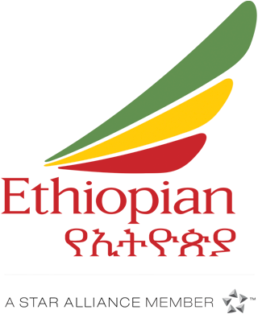
Ethiopian Airlines
Ethiopian Airlines (ET), having started operations in April of 1946, is the largest and most profitable airline in Africa. Annually, with 116 international 23 national and 44 freighter destinations, it services 5.2 million passengers and 500 tons of freight through its main hub in Addis Ababa.
Although the airline is publicly owned by the Ethiopian government, it is managed autonomously. This private management, unlike most African state-owned airlines, protects against nepotism and politically influenced business decisions. Where government regulations, and protectionism plague African airlines, Ethiopian Airlines greatly benefits from governmental support in the form of tax exemptions and special loans, allowing for the redistribution of revenue for investments and other improvements. Consequently, it has become the most profitable airline in Africa due to its three pronged approach: strategic network building, decentralized management structure, and diversification of income streams.
But similar to the experiences of other Ethiopian institutions, the conflict in the North has exposed ET to defamation campaigns in the digital space through crusades like Boycott Ethiopian Flowers and the amplification of falsehoods about the use of Ethiopian aircrafts to transport weapons in Ethiopia’s Tigray crisis. Both campaigns, propagated by partisan critics like Martin Plaut and Nima Elbagir, did little to damage the airline’s profit margins with 95 million stems sold during the valentine’s season and the Airline earning a revenue of 3.3 billion dollars in 2021.
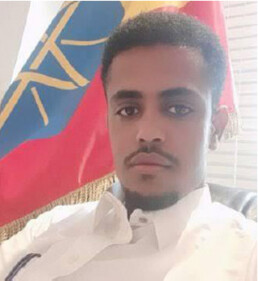
Suleiman Abdella
Suleiman Abdella, born in Dessie, is amongst the Ethiopian Diaspora living in Saudi Arabia. Since January of 2020, he has used his Arabic language skills to translate and share Arab perspectives on the Grand Ethiopian Renaissance Dam,which would otherwise be inaccessible to the Ethiopian public. Suleiman is a self-prescribed digital diplomat who uses his Twitter and Facebook accounts to combat unsubstantiated narratives and unpack biased reporting.
Acknowledging the deep mistrust the community has towards traditional media, Suleiman works to rebuild that trust as one of many independent voices providing evidence-based narratives for both internal and external audiences.
Suleiman advocates for increased participation of the Ethiopian community so as to provide a varied and honest depiction of the reality on the ground. His resolve in countering harmful claims, particularly as it relates to GERD, dubs him a pioneer in digital advocacy.
Share
ከአምባሳደር ሬድዋን ሁሴን ጋር የተደረገ ቃለመጠይቅ
አምባሳደር ሬድዋን ሁሴን የኢትዮጵያ ውጪ ጉዳይ ሚኒስቴር;አምባሳደር ሬድዋን ሁሴን የኢትዮጵያ ውጪ ጉዳይ ሚኒስቴር; ሚኒስትር ዴታ ከሆርን ሪቪው ጋር በወቅታዊ አገራዊሚኒስትር ዴታ ከሆርን ሪቪው ጋር በወቅታዊ አገራዊ ጉዳዮችና በሚኒስቴሩ ስለታቀዱ ለውጦች እንዲሁም በ 2022ጉዳዮችና በሚኒስቴሩ ስለታቀዱ ለውጦች እንዲሁም በ 2022 ስለሚጠበቁት ስለሚጠበቁት ጉዳዮችን ጉዳዮችን በተመለከተ በተመለከተ ቃለመጠይቅ ቃለመጠይቅ አድርገዋል፡፡
አምባሳደር ሬድዋን ሁሴን
የኢትዮጵያ ውጪ ጉዳይ ሚኒስቴር; ሚኒስትር ዴታ
የኢትዮጵያ ውጪ ጉዳይ ሚኒስቴር
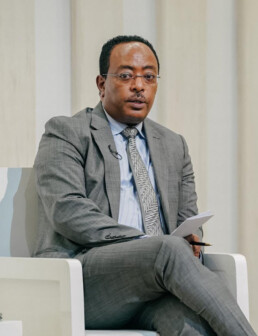
ሆርን ሪቪው:አምባሳደር በመጀመሪያ ይህንን ቃለመጠይቅ ለማድረግ ጊዜ ስለሰጡን ማመስገን እንፈልጋለን፡፡ ኢትዮጵያ ባለም ላይ ስለምትገኝበት ሁኔታ ይሄንን ያለፈውን ዓመት እንዴት ይገልጹታል?
2021 ኢትዮጵያ ብዙ ውጣ ውረዶች ያለፈችበት ጠመዝማዛ ጉዳዮች አስቸጋሪ ክስተቶች የተከሰቱበትና የፖለቲካ መጠማዘዞች የነበሩበት ዓመት ነበር፡፡ ይህም ኢትዮጵያ የሚታመኑ ወዳጆቿን ከደግ ጊዜ ብቻ ወዳጆቿ ለመለየት ረድቷታል፡፡ ይህ ያለፈው ዓመት የቀጠናችንና ዓለም አቀፍ አጋሮቻችንን ፍላጎቶችና ስሜቶች አሳይቶናል፡፡ በህግ የተመረጠው የኢትዮጵያ መንግስት ላይ የጫና ዘመቻ በማድረግ ወደነርሱ ፍላጎቶች ለማዘመም ሲሞከር በማያሻማ ሁኔታ ተመልክተናል፡፡ እንደማንኛውም አገር ኢትዮጵያም የራሷ የውጪ ጉዳይ ፍላጎቶችና ምርጫዎች ያለው ፖሊሲ ስላላት የውጪ ሀይሎች በፈለጉት ጉዳይና ሀሳብ ሊገዛ አይጠበቅበትም፡፡ በአሁኑ ጊዜ በሰሜኑ ከተከሰተው ድህረ ግጭት ጉዳይ ጋር ብቻ ሳይሆን ሉአላዊነቷንና ነጻነቷን በአፍሪቃ ቀንድ ብቻ ሳይሆን ከዚያም ማዶ ለማረጋገጥ ተጠምደን ቆይተናል፡፡
ሆርን ሪቪው:የሚገጥሙንን ተግዳሮችና ለማሻሻል ያሉት ክፍተቶች ምንድናቸው?
ዋናው መሰረታዊ ጥያቄ ውስጣዊ ልዩነቶቻችንና አለመስማማታችንን እንዴት መፍታት ችለን ወደፊት መራመድና የብልጽግናን መንገድ መጓዝ እንችላለን የሚለው ነው፡፡ ምንም እንኳን ያሉንን ችግሮች በሙሉ ባንድ ጊዜ መፍታት ባንችልም፤ ነገር ግን በመሰረታዊ ጉዳዮች ላይ አገራዊ መግባባት ላይ መድረስ አስፈላጊ ነው፡፡ ከሁሉም መጀመሪያ የራሳቸንን የውስጥ ችግሮች ለመፍታት የበለጠ መጣር አለብን፡፡ ያሉብንን ክፍተቶች ለማጥበብ ተጨማሪሥራዎች አሉብን፡፡ በዚህ ረገድ መጪው ሁሉን አቀፍ ውይይት ችግሮቻችንን በበለጠ ለይተን የመረጥነውን ጎዳና ለመከተል በደንብ ይረዳናል፡፡ ኢትዮጵያ ረጅም ያገረ መንግሥት ታሪክ ቢኖራትም ነገር ግን የራሳችንን የውስጥ ችግሮች ከመፍታት መቻል አንጻር ወደ መቶ ዓመት ወደኋላ ቀርተናል፡፡ በዚህ ውጥንቅጡ በወጣ ብዙ የተለያዩ ፍላጎቶች በሚከሰቱበት ዓለም ላይ ኢትዮጵያ መስቀለኛ መንገድ ላይ ቆማ በመቅረትና በልዩነቶቻችን ውስጥ ሠርገው ገብተው ለጥቃት እንዳንጋለጥ መሆን አለበት፡፡ እያንዳንዱ ኃይል መንግሥትም ሆነ የሚዲያ አካል ወይም ሌላ የራሱ ፍላጎቶች አሉት፡፡ በተመሳሳይ ኢትዮጵያ ከማንም ጋር የቁርባንጋብቻ ስላልፈጸመች ይልቁንም የራሷን ያገርውስጥም ሆነ የውጪ ጉዳይ የፖሊሲ ቅድሚያዎች ላይ ትኩረት ማድረግ አለባት፡፡ ኢትዮጵያ ምን ጊዜም ቢሆንየገለልተኛ አገሮች ንቅናቄ አካል ስትሆን ይህንን አቋሟን ወደፊትም ትቀጥልበታለች፡፡ ይሄ ደግሞ የራሱ የሆነ ድብቅ ወይም አሳሳች ችግር ሊኖረው ይችላልና ኢትዮጵያ ወዳጆቿን በደንብ ለይታ የወደፊት ያጭር ጊዜና የረጂም ጊዜ ግቦቿን አስቀምጣ ፍላጎቶቿን ማሟላት አለባት፡፡ አለበለዚያ በታላላቅ መርከቦች ፍትጊያውስጥ ተውጣ እንዳትቀር ያሰጋታል::
ሆርን ሪቪው:ሕግ በሚገዛው ዓለም አቀፍ ሥርዓት ውስጥ ያለን ይመስልዎታል?
ዓለም አቀፍ ልምዶች አሉ፡፡ ደንቦችም በእርግጠኝነት አሉ፡፡ ነገር ግን እነዚህ ደንቦች የተቀመጡት ሁሉንም እኩል እንዲያገለግሉ ሳይሆን ይልቁንም ደንቦቹን ያወጡትን ለማገልገል ነው፡፡ ኃይልና ችሎታ አቅም ያላቸው አገሮች አልፎ አልፎ ደንቦቹን ለራሳቸው ፍላጎቶች ሲያውሉ ይሄ ችሎታ የሌላቸው ደግሞ ሲገደዱ እናያለን፡፡ እንደኛ አርል ላለ አዳጊ አገር በዓለም አቀፉ መድረክ ላይ በደንብ በተጠና እቅድና አገራዊ ፍላጎቶችን በየጊዜው ማጤንና ከተለዋዋጭ ሁኔታዎች ጋር መስተካለል ያስፈልገዋል፡ ፡ ስለዚህ ነው በሕግ በሚገዛ ዓለም አቀፍ ሥርዓት ውስጥ ነን ከማለት ወደኋላ የምለው፡፡
HORN REVIEW:ለመጪው ሁሉን አቀፍ ውይይት የታቀዱት ዋና ጉዳዮች የትኞቹ ናቸው?
በመጀመሪያ ብሔራዊ ውይይት የሚለው ቃል ላይ ጥርት ያለ መግባባት ያስፈልጋል፡፡ ተጠባቂው ብሔራዊ ውይይት ሊያሳካ የሚፈልገው በሕዝቦች መካከልና በፖለቲካ ልሂቃን የሚጋሩት ግብ መንደፍ ነው፡፡ ሽብርተኛ ተብለው ከተፈረጁ ሃይሎች ጋር ድርድር ለማካሄድ አይደለም፡፡ ይህ ጉዳይ እንዲያልቅ፤ ወራት ምናልባትም ዓመታት ሊፈጅ ይችላል፡፡ አሁን ባለው ተጨባጭ ሁኔታ ሕወሀት በእንደዚህ ዓይነቱ ውይይት ለመሳተፍ እቅድ የለውም፤ ምክንያቱም የሚያቀርባቸው ሀሳቦች እርስበርሳቸው የሚቃረኑ ናቸው፡፡ ማንም ሕጋዊ መንግሥት ከሽብርተኛ ኀይሎች ቅድመ ሁኔታዎች መቀበል አይጠበቅበትምና፡ ኢትዮጵያም በዚህ ጉዳይ ላይ ልትገደድ አትችልም፡፡ ቅድመ ሁኔታዎችንና ደረጃዎችን በግልጽ ማስቀመጥ የኢትዮጵያ መንግሥት ኃላፊነት ሲሆን ነገሮችን ወደነበሩበት የማስተካከልና የመልሶ ማቋቋም ጥረቶችን ማድረግ አለበት፡፡
ሆርን ሪቪው:በሚኒስቴር መስሪያ ቤቱ ያሉ የመንግስት ሰራተኞችን ተሻለ ሁኔታ ለማሟላት የሚኒስቴሩ የአቅም ግንባታ እርምጃዎችእ እየተወሰዱ ነው?
ሚኒስቴር መሥሪያ ቤቱ አሠራራችንን እና አጠቃላይ ቁመናችንን ለማሻሻል የተለያዩ ለውጦችን እያደረገ ነው። ሚኒስቴሩ ለውጦችን ከማቅረባቸው በፊት በሠራተኞቹ ላይ ረጅም እና ጥልቅ ግምገማ አድርጓል። ባለ ሁለት አቅጣጫ ግምገማችን ጠንካራ እና ደካማ ጎኖቻችንን በተሻለ ሁኔታ ለመለካት ግላዊ እናደረጃውን የጠበቀ ፈተናን ያካትታል። በአንጋፋ ሠራተኞችና በአንፃራዊነት አዲስ በሆኑ ሠራተኞቻችን መካከል በንድፈ ሃሳባዊ ዕውቀት እና ልምድ ላይ ክፍ ያለ ልዩነት አለ ፣ ልዩነቱ በአብዛኛው በሥራ ላይ ከመቆየት ጋር የተያያዘ ምክንያት ነው። ከአቅም ግንባታ አንፃር ሚኒስቴሩ ለሠራተኞቻችን የቴክኒክ ዕውቀትና ክህሎትን መሠረት ያደረገ ሥልጠና በመስጠት እነዚህን ክፍተቶች ለማስተካከል ቅድሚያ ሰጥቶ ይሠራል።
2021 ኢትዮጵያ ብዙ ውጣ ውረዶች ያለፈችበት ጠመዝማዛ ጉዳዮች አስቸጋሪ ክስተቶች የተከሰቱበትና የፖለቲካ መጠማዘዞች የነበሩበት ዓመት ነበር፡፡ ይህም ኢትዮጵያ የሚታመኑ ወዳጆቿን ከደግ ጊዜ ብቻ ወዳጆቿ ለመለየት ረድቷታል፡፡
ቀደም ባሉት ጊዜያት የሥራ ላይ ሥልጠናን ለአቅም ግንባታ እንደ ቀዳሚ መሣሪያ እንጠቀም ነበር :: ይህም የጠቅላላ ዕውቀት ባለቤቶች በብዛት እንዲኖር አድርጓል። በዲፕሎማሲያዊ ሥራችን ላይ ልዩ ትኩረት በሚሰጣቸው አካባቢዎች ፣ ጂኦግራፊያዊ ቦታዎች እና ጭብጥ ጉዳዮች ላይ የበለጠ ትኩረት በማድረግ ይህንን ክፍተት ለማሟላት አስበናል። በተጨማሪም በሚኒስቴር መሥሪያ ቤቱ ውስጥ የነበረውን ጊዜ ያለፈበት አሠራር ማለትም እያንዳንዱ ባለሙያ ሠራተኛ ከሶስት አመት አገልግሎት በኋላ አግባብነት ያላቸው ጥናቶች ስለማካሄዱ ወይም የቋንቋዎች ችሎታ ከግምት ውስጥ ሳይገባ አለም አቀፍ ስምሪትየሚረጋገጥበትን ልምድ ለውጠን ፣ በማሻሻል ላይ እንገኛለን። ይህ አሠራር በተወሰነ ርእሰ ጉዳይ ላይ የተካኑ የባለሙያዎች እጥረት እና የጠቅላላ ዕውቀት ባለቤት ሠራተኞች ብዛት እንዲፈጠር አድርጓል።
አሁን ባለው ተጨባጭ ሁኔታ ሕወሀት በእንደዚህ ዓይነቱ ውይይት ለመሳተፍ እቅድ የለውም፤ ምክንያቱም የሚያቀርባቸው ሀሳቦች እርስበርሳቸው የሚቃረኑ ናቸው፡፡
በተጨማሪም፣ ካስፈላጊው ብዛት በላይ የተሞሉት የውጪ ሚሲዮኖቻችን ያስከተሉት የወጪ ሸክም ይህን አሰራር ለመሻር ሌላው ምክንያት ነው። ለምሳሌ በአንድ አካባቢ ውስጥ ያሉ በኢንዱስትሪ የበለጸጉ አገሮች ኤምባሲዎች አራት ወይም አምስት ዲፕሎማቶች ሲኖራቸው፣ በዚያው ክልል ያለው የኢትዮጵያ አቻ እስከ 15 ዲፕሎማቶች ሊኖሩት ይችላል። ሚኒስቴሩ በውጭ ፖሊሲያችን ዓላማ መሰረት፡ የሚሲዮኑን ወይም የኤምባሲውን መጠን ለመመዘን ፤እንደ ፖለቲካዊ ጉዳዮች ሁኔታ፣ እንደ የዲያስፖራው ፍላጎቶች፣ የኢንቨስትመንት እና ከአገሮቹ አጋርነት ጋር ባሉ ጉዳዮች ላይ የበለጠ ትኩረት ለመስጠት ያለመ ነው። ሚኒስቴራችን ተደራሽነቱን ለማስፋት በባህላዊ ዲፕሎማሲ ብቻ ሳይሆን በዚህ የዲጂታል ዘመን መሳሪያዎችን ለመጠቀም አስቧል። ምንም እንኳን ይህ የታቀደው ማሻሻያ በስርአቱ ላይ ድንጋጤዎች ሊፈጥር ቢችልም፣ የዚህ ማሻሻያ የረዥም ጊዜ ፋይዳዎች እጥፍ ድርብ እንደሚሆኑ አምናለሁ።
ሆርን ሪቪው:ወደ 2022 ዓም ስንሄድ በሚኒስቴሩ ቅድሚያ የሚሰጣቸው ሶስት የውጭ ጉዳይ ፖሊሲ ሥራዎች የትኞቹ ናቸው?
ዋናዎቹ 3 ጉዳዮቻችንን; አንደኛ የአገር ውስጥ ጉዳዮቻችንን በተገቢው መንገድ አካሂደን ያገራችንን ገጽታ አድምቀን ብቃታችንን አስረግጠን ማሳየት ነው፡፡ ሁለተኛ፣ ሚኒስቴሩ የኢንቨስትመንትና፣ የቱሪዝም ምንጭ እንዲሆኑ፣ በውጭ ሀገራት የሚደረጉ ዘመቻዎችን በመዋጋት ረገድ እገዛ እንዲያደርጉ ፤ከኢትዮጵያውያንና፣ ከትውልደ ኢትዮጵያውያን እንዲሁም ከኢትዮጵያ ወዳጆች ጋር ያለውን አጋርነት ለማጠናከር አቅዷል። በመጨረሻም፣ የኢኮኖሚ እድገታችንን ለማጎልበት ባገር በቀል የኢኮኖሚ ማሻሻያ አጀንዳ ማካሄድ እየጀመርን ነው። አላማችን ቀስ በቀስ እራሳችንን መቻል ቢሆንም፣ አሁንም የኢንቨስትመንት ፤ የእርዳታ አጋርነት እና ፕሮጀክቶችን መጠየቃችን ይቀጥላል።
ሆርን ሪቪው:አሁን ካለው የፖለቲካ አውድ አንፃር ከዚህ ቀደም ታይቶ በማይታወቅ መልኩ የማህበራዊ ሚዲያ ዘመቻዎች እንዲሁም በዲያስፖራ አካባቢዎች ትልቅ መነሳሳቶች ታይተዋል። ሚኒስቴሩ በዲጂታሉ ዓለም ላይ እንደዚህ ያሉ የዜጎች ዲፕሎማሲ ጥረቶችን ለማበረታታት እንዴት አቅዷል?
የፐብሊክ ዲፕሎማሲ እና የህዝብ ግንኙነት ክፍሎችን እያሰፋን እንገኛለን፤ እንዲሁም በዲጂታል ተግባቦት ዘርፍ ከፍተኛ የሰለጠኑ ወጣት ባለሙያዎችን በማሰባሰብ ላይ እንገኛለን። ከሀገር ውስጥ ቋንቋዎች በተጨማሪ ዲያስፖራውን ወደእኛ ለማቀራረብና ለማዋሃድ የቋንቋ መሰረታችንን ወደ ፈረንሳይኛ፣አረብኛ፣ ስፓኒሽ እና እንግሊዘኛ እያሰፋን ነው። ሌላው፣ ከኢትዮጵያ ሚኒስቴር መሥሪያ ቤቶች፣ ከዲያስፖራ ኤጀንሲዎችና ድርጅቶች ጋር ያለንን ትብብርናእንቅስቃሴ ለማሳደግ ዓላማችን ነው።
በዲያስፖራው የሚታየው የመቀራረብና መተሳሰብ ደረጃ የሀገር ውስጥ አንድነታችን ነጸብራቅ ነው። መጪው ሀገር አቀፍ ውይይት በዲያስፖራው ውስጥም የጠበቀ ትስስር ይፈጥራል የሚል ተስፋ አለኝ። በዚህ ረገድ የኢትዮጵያ ኤምባሲዎችና ሚሲዮኖች የዲያስፖራ አባላትን በቀጥታ ለማነጋገር የተለያዩ የኦንላይንሴሚናሮችን፣ ምክክር እና ውይይቶችን በማዘጋጀት ላይ ናቸው። በዲያስፖራ ውስጥ ለመሳተፍ ያለው ከፍተኛ ፍላጎት አበረታች ነው።
ሆርን ሪቪውበ 2022 ዓም ምን አዲስ ነገር መጠበቅ እንችላለን?
2022 የዲያስፖራውን ተሳትፎ የበለጠ እንደሚያመጣ ተስፋችን እና እቅዳችን ነው። እየተካሄደ ያለው ታላቁ ወደ ሀገር ቤት መለስ ዲያስፖራው በራሱ መሬት ላይ ያለውን ተጨባጭ እውነታ እንዲገመግም ሰፊ እድል እንደሚፈጥር ተስፋ እናደርጋለን። ባገራቸው ጉዳይ ላይ ቀጥተኛ ባለድርሻ አካላትእንደመሆናቸው መጠን ትክክለኛ መረጃን በማሰራጨት ረገድ የዳያስፖራው ሚና ወሳኝ ነው። ከዚሁ ጋር ተያይዞ በጦርነቱ ሳቢያ በሆስፒታሎች፣ በትምህርትቤቶችና በመሳሰሉት የህዝብ መገልገያ ተቋማት ላይ ከደረሰው ውድመት የተነሳ መልሶ ግንባታውን ለማገዝ ከዲያስፖራው በኩል የሚበረታታ ጥረት አለ። የቀጣዩአመት ዋና ሥራችን የሀገር ውስጥ ተሀድሶ ጥረታችንን በበለጠ ማጠናከር ነው። ይህም አጋሮቻችንን እና ወዳጆቻችንን በዲፕሎማሲያዊ እና በልማት ዘርፎችለበለጠ ትብብር በማበረታታት ረገድ ትልቅ ተጽእኖ ይኖረዋል ብለን እንጠብቃለን። በተጨማሪም፣ ግጭቱን ብናልፍም፣ ለተሻለ ተስፋ፣ የወደሙ መሠረተልማትን እንደገና መገንባት እንጀምራለን። የሚቀጥለው አመት የመልሶ ግንባታ እና የመልሶ ማቋቋም ሥራን የምናስተካክልበት አመት ይሆናል፡፡
ሆርን ሪቪው:ለወጣት ባለሙያዎች በአለም አቀፍ ግንኙነት ውስጥ ለዲፕሎማሲ እና ለአለም አቀፍ ጉዳዮች ያላቸውን ፍቅር ለማደስ አሁን ያለ ወይም የወደፊት እቅዶች ይኖሩ ይሆን?
በመጪው አመት በዩንቨርስቲ ካምፓሶች እና አካባቢ በአህጉራችን፣ በቀጠናችን እና በአለም ላይ በተመለከቱ ዋና ዋና አለም አቀፍ ጉዳዮች ላይ በርካታ ወርክሾፖችን፣ የፓናል ውይይቶችን እና ስልጠናዎችን ለማዘጋጀት እቅድ ይዘናል። በቀጠናችን ውስጥ ካሉ ሌሎች አገሮች ጋር ሲነጻጸር, እኛ በዚህ ረገድ በደንብ ዘግይተናል፡፡ ይህ በከፊል ከፋይናንስ አቅርቦት ቁርጠኝነት ማነስ እና በከፍተኛ የትምህርት ተቋማት እና በሌሎች ባለድርሻ አካላት መካከል የተቀናጀ ጥረት ባለመኖሩ ነው፡፡በዚህ ረገድ ብዙ መሥራት የሚጠበቅብን ሲሆን፤ ሚኒስቴራችን አሁን ያለውን የዜጎች የዲፕሎማሲ መነቃቃት በዩኒቨርሲቲዎቻችን ግቢዎች ለማስቀጠል አቅዷል።
Share
Ambassador Redwan Hussien, State Minister at the Ethiopian Ministry of Foreign Affairs, sat down with Horn Review
Ambassador Redwan Hussien, State Minister at the Ethiopian Ministry of Foregin Affairs, sat down with Horn Review to discuss Ethiopia’s current state of affairs, and provided insight into the restructuring efforts at the Ministry
Ambassador Redwan Hussien
State Minister
Ethiopian Ministry of Foreign Affairs

HORN REVIEW:Ambassador, thank you for taking time to speak with us. In terms of Ethiopia’s global standing due to the conflict in the North, how would you characterize this past year?
2021 has been a tumultuous year for Ethiopia with a number of twists and turns, shenanigans, and political maneuverings; this has helped Ethiopia clearly distinguish its trusted allies from its fair weather friends. This past year has also revealed the interests and motivations of our regional and global partners. We have indisputably witnessed various pressure campaigns in an attempt to bend the will of the Federal Government, the elected representative of the Ethiopian people, to fit western agenda. Similar to these very nations, Ethiopia has its own foreign policy priorities and should not be expected to be at the beck and call of external powers. We are grappling not only with the challenges and aftermath of the conflict in the North, and all the while asserting our sovereignty and autonomy in the Horn and beyond.
HORN REVIEW:In the context of our existing challenges, what are some challenges, existing gaps, or areas of improvement?
A: The elemental question is how we handle our internal disagreements and resolve our fundamental differences to propel the nation toward a peaceful and prosperous path. Though we may not be able to resolve all our differences all at once, it is important to bring about a national consensus on the most fundamental things. First and foremost, we need to place the highest importance on solving our own issues, as narrowing existing gaps and societal cleavages requires incremental work. The upcoming all-inclusive dialogue will help in sorting out our issues and better equip all Ethiopians to chart a path of their own choosing; this grand project, however, does not include groups who have been designated as terrorist groups by Parliament; that is, unless, it reconsiders its decision. In this multipolar global order, Ethiopia must not remain at a crossroads because our differences make us vulnerable to exploitation by various groups that seek to weaponize our differences. Though Ethiopia has enjoyed a long history of statehood, regrettably- we lag 100-years behind in our collective ability to address significant differences amongst ourselves.
HORN REVIEW:Would you say that we exist in a rules-based international system?
There are international norms, and there are certainly rules, but these rules are not in place to serve everybody, rather- they are in place to serve the rule makers. Those with power and means frequently bend these rules to their favor, those without risk being taken advantage of, and even coerced. For a developing country like ours, the international arena requires careful planning, as well as a frequent aligning and realigning of national interests. For this reason, I hesitate to say that we are indeed in a rules-based international system.
HORN REVIEW:What are the core issues planned for the upcoming all-inclusive dialogue?
First, there needs to be clarity in our understanding of the term “national dialogue”. The tentative national dialogue is meant to establish a shared goal amongst the people, and the political elite; it does not mean or imply bargaining with designated terrorist elements. This endeavor could take months, or perhaps years depending on the process. Considering the Ethiopian parliament’s designation, the Tigrayan People’s Liberation Front (TPLF) and the Oromo Liberation Front (OLF – Shene) will not participate in the dialogue because this designation disqualifies them from having a stake. No legitimate government can be made to accept preconditions from terrorist elements and Ethiopia certainly will not accept preconditions if a negotiation is to happen. It is the Ethiopian government’s responsibility to set clear conditions and standards so as to move forward with normalization and rehabilitation efforts.
HORN REVIEW:Among the Ministry’s most recent reforms, are there initiatives in place that best equip civil servants at the ministry?
The Ministry is rolling out various changes to improve its capacity and overall stature. Before proposing changes, the Ministry undertook a lengthy and thorough assessment of its personnel. Our two-pronged assessment entails a personal, as well as a standardized test, to best gauge our strengths and weaknesses. There is a distinct disparity in theoretical knowhow and experience between our senior and junior staff, the difference is largely due to seniority. In terms of capacity building, the Ministry prioritizes bridging these gaps by providing technical and skills-based training to our staff. In the past, we used on-the-job training as a primary tool for capacity building which has resulted in an abundance of generalists. We intend on ameliorating this gap by placing greater emphasis on highly specialized areas, geographic locations, and thematic interests in our diplomatic work.
We are also in the process of amending a rather antiquated practice at the Ministry whereby every professional staff is ensured an international deployment after three years of service, i.e. irrespective of factors like experience, relevant studies, and language. This practice has led to scarcity of subject matter experts and an abundance of generalists. In addition, the financial burden of our overstaffed missions is yet another motivation to repeal this practice. For example, where embassies of industrialized nations in a particular region would have four or five diplomats, the Ethiopian counterpart in the same region might have up to 15 diplomats. The Ministry aims to place heavier emphasis on factors like political relevance, diaspora needs, investment and partnership interests so as to rate the size of the mission or embassy in line with our foreign policy objectives.
Our Ministry is intent on widening its reach not only through traditional diplomacy but also by utilizing tools of this digital age. Though there might be initial shocks to the system, I believe the long term benefits of this reform will be many fold.
HORN REVIEW:Going into 2022, what are the Ministry’s top three foreign policy priorities?
The to One is to assert our relevance by handling our domestic issues, and also portraying a positive image. Secondly, the ministry plans to strengthen its partnership with Ethiopians in the diaspora as well as friends of Ethiopia, to facilitate paths for investment and tourism. This will significantly add to efforts to combat foreign and foreign backed campaigns against the Ethiopian people.
Considering the Ethiopian parliament’s designation, the Tigrayan People’s Liberation Front (TPLF) and the Oromo Liberation Front (OLF – Shene) will not participate in the dialogue because this designation disqualifies them from having a stake.
Lastly, we are only beginning to venture deeper into our homegrown economic reform agenda to enhance our economic development. Though our aim is to gradually become self reliant, we still solicit partnerships and projects both in terms of investment and aid.
HORN REVIEW:Horn Review : Given the current political context, there have been unprecedented waves of social media campaigns as well as mobilisation in the diaspora. How does the ministry plan to encourage such citizen diplomacy efforts in the digital space?
We are expanding our public diplomacy and public relations departments as well as staffing them with highly trained young professionals in digital communications. In addition to the local languages, we are expanding our linguistic base to French, Arabic, Spanish, and English, to integrate the diaspora. Furthermore, we aim to increase our collaboration and ventures with Ethiopian Ministries, as well as diaspora agencies and organizations.
It is apparent that the level of cohesion observed in the diaspora is a reflection of our unity at home; it is my hope that the upcoming national dialogue will forge greater ties within the diaspora as well. In this regard, Ethiopian embassies and missions are hosting various online seminars, consultations, and discussions to directly address members of the diaspora. We are encouraged by the overwhelming interest for involvement from the diaspora.
HORN REVIEW:What can we expect to see in 2022?
It is both our hope and plan that 2022 will bring an increased involvement of the diaspora. We hope that the great homecoming that is taking place provides ample opportunity for the diaspora to assess the reality on the ground for themselves. As direct stakeholders, the diaspora can play a crucial role in disseminating accurate information.
In parallel, there are commendable efforts from the diaspora to help in the daunting task of reconstruction from damages to hospitals, schools, and other public facilities as a result of the war.
Our major task in the coming year is bolstering our domestic reform efforts. We expect this to have a cascading effect in encouraging our partners and friends for increased collaboration, both in the diplomatic and development spheres. Additionally, though we may be through with the conflict, we will need to begin reconstruction and rebuilding infrastructure. The next year will be the year of mending, reconstruction, and rehabilitation.
HORN REVIEW:Are there plans, ongoing or future, to reinvigorate passion for diplomacy and international affairs for the young professionals in international relations?
In the coming year, we are tentatively planning to host a number of workshops, panel discussions, and trainings in and around university campuses on core international Affairs issues relevant to our continent, our region, and the world. Compared to other nations in the region, we significantly lag in this regard; this is partly due to the financial commitment and lack of a coordinated effort between the ministry institutions of higher learning, and other relevant stakeholders. There is more to be done in this regard, and our ministry plans to maintain the current wave of citizen diplomacy in our university campuses.
Share
The Horn Review Scholars Program
Month: December 2021
Opportunities
Email : scholars@hornreview.org
The Horn Review Scholars Program (HRSC) is an 8 week intensive training program to highschool seniors with a passion for international relations, diplomacy, political economy of developing nations, as well as quantitative research methods and analysis. The HRSC is dedicated to fostering and equipping upcoming generations of theorists, researchers, and policymakers with technical and quantitative tools, leadership skills, and technical know-how of the current international system.
Applicant requirements:
- Applicants must be high school juniors, or a graduating seniors within the Ethiopian Educational System
- Applicants must have an excellent academic background and good command of the English language
- Along with a complete application, applicants must submit attested copies of their academic records, two letters of recommendation, and a two page thesis proposal no later than May 1st
Applications for HRSP 2022 will open April 1st, 2022.
To learn more about the Horn Review Scholars Program, email us at scholars@hornreview.org
Research Fellowships:
Horn Review annually hosts researchers from accredited academic institutions from Africa, and from around the world, with demonsted research interests or background in the Horn Region, and/or the African Continent.
Applications for the Horn Review research program will open on April 15th, 2022.
To learn more about the Horn Review Research Fellowship, applicant requirements, and academic credits email fellowships@hornreview.org
Share
The Untold Story of a TPLF Hostage Crisis
Month: December 2021
Eliezer
I'm an Engineer based in California & born in Addis Abeba. I am a Senior Engineer at LinkedIn. I studied Computer Science at Stanford and previously worked on Ads engineering at Facebook. I've also run my own startup & and worked in a few others in Seattle & San Francisco. Most of this site is currently dedicated to understanding geopolitical issues involving Ethiopia.
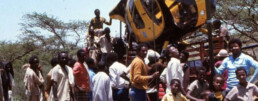
The following story is article version of a tweet shared on Aug 20 2021 based on accounts from US Embassy and State Department cables from the Jimmy Carter Administration declassified by the US National Archives and Records Administration in April 2014. All the cables can be accessed in chronological order here.
On October 31st, 1978 TPLF militants abducted an American helicopter pilot and triggered an international hostage crisis. What follows is the untold story of how the TPLF introduced itself to the United States [1] .
Northern Ethiopia faced a severe locust invasion in 1978. According to a June 1978 Washington Post article, “43 swarms [of locusts] have been spotted in Ethiopia” and locusts were devouring “8,000 to 34,000 tons [of vegetation] each day”. The UN’s Desert Locust Control Organization of Eastern Africa was at the forefront addressing the crisis and had a fleet of 9 aircraft shared between seven countries. One of these aircraft had been stranded near the Kola Tembien region for three months and required several repairs.
At the time, George William Krois, was a 36 year old American helicopter pilot and Canadian resident flying frequent locust control missions in Tigray. George worked for Viking Helicopter Ltd., a Canadian contractor performing services for the UN. On October 30th, Krois had flown two missions ferrying mechanics to repair a UN spray aircraft that had been grounded in Abiy Adi.

According to an account given by Canadian Pilot Bill Waugh, a co-worker of Krois’ at Viking Helicopter, wages for locals guarding the aircraft had been delayed for several days. Soon, locals guarding the grounded aircraft had began to grumble. Word soon started to spread of a third flight that would deliver their payments. TPLF bandits in the countryside heard these rumors and quickly moved to the area.
On the arrival of the third mission, TPLF gunmen charged the helicopter, held Krois under gunpoint and ordered him to reroute and fly to a TPLF-held location. The gunmen stole all the cash and also kidnapped four Ethiopian mechanics who arrived with Krois and instructed them to walk 70 kms on foot in the same direction. Krois and the TPLF bandits landed at a remote site and curious local peasants flocked toward the helicopter. TPLF told the peasants that the helicopter “was a gift from the Arabs and that there would be more” to come and loaded it on a truck and drove away.

Tigrayan Elders Enraged at TPLF
In Abiy Adi, Tigrayans were enraged by the abduction, fearing the UN would suspend the highly effective Locust Control Program in their community. The head of the UN’s Locust Control Program in Addis, a man by the name of Mulugetta Bizuneh heard the news of the abduction and immediately dispatched locals from Abiy Adi to search for the TPLF bandits in different directions, on foot, to try to contact the guerillas and secure the release of his staff.
After a few days of searching, on the 5th of November, large crowds of residents and church leaders finally found the TPLF bandits in the countryside. The crowd, who had travelled a long distance, demanded the TPLF release George Krois and the four Ethiopians.
The TPLF rebuffed their demands and told the crowd that the captives were “agents of the Ethiopian government“. The crowds forcefully protested and argued that the captives were civil servants helping their community battle locust swarms.
When the uproar from the crowd wouldn’t relent, the TPLF agreed to hold a detailed deliberation under the condition that church leaders leave. The crowds strongly objected. Then TPLF leaders began a one hour lecture explaining their discomfort with crosses and church leaders.

At last, the sides agreed to have a meeting in which church leaders were cast to one side and villagers to another. The TPLF, then proceeded to deliver another two hour lecture, this time about the goal of its movement as described in its manifesto. The crowd, then became very agitated.
The meeting adjourned without a discussion on the captives. The evening arrived and the frustrated crowd spent the night in the cold outdoors. The next morning the people were restless and hungry. And yet again the TPLF subjected them to another three hours of indoctrination.
After testing the limit of the crowd’s patience, on November 7th, the TPLF released the four Ethiopian detainees.George Krois, the American pilot, was nowhere to be found. The TPLF said he would be released “very soon” and sent the crowd and Ethiopian captives back to Abiy Adi.
The Americans and Canadians Informed
By this time, UN Locust Control Head, Mulugeta informed the US Ambassador Fred Chapin of Krois’ abduction. Ambassador Chapin dispatched a cable to US Secretary of State Cyrus Vance to officially notify the State Department of the abduction of an American citizen by the TPLF.
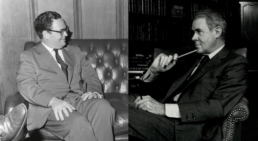
Secretary Vance then promptly made plans to notify Krois’ father in California. Unfamiliar with the TPLF bandits at this time, he sent a cable back to Ambassador Chapin inquiring: if they “could. make a point that any publicity TPLF garners from the kidnapping would be bad? Or would TPLF care as long as they got publicity?”
Ambassador Chapin received the cable and looped in the Canadians which had a stake in Krois’ release since Krois was a Canadian resident with a wife in Toronto.
Both determined to coordinate plans and “to hold the story as tightly as possible” to starve the TPLF of any publicity.
American Call on a Friend
Lacking a direct point of contact with the TPLF, the American Ambassador in Sudan, Donald Bergus, appealed to the Sudanese Government of Jaafar Nimeiry. Nimeiry, a close US and Egyptian ally, was providing financial support and a headquarters in Khartoum to the TPLF[3].
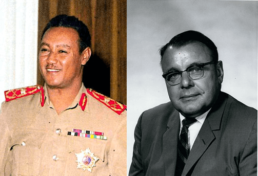
Ambassador Bergus phoned General Omar Al-Tayeb, head of the Sudanese State Security under Nimeiry, and pressed him to approach TPLF representatives in Khartoum to negotiate Krois’ release. After meeting TPLF reps in Khartoum, General Omar reported: “TPLF want money or material assistance of some kind before release of Krois“.
Omar told TPLF of US policy prohibiting ransom of any kind for release of hostages and that any donation would be made “under the table“.
Ambassador Bergus then sent a cable to the State Department to update Secretary of State Vance about the TPLF’s demands as relayed by General Omar. Bergus then waited for next steps from the State Department.
Meanwhile, the Canadians also hatched a plan of their own.
The Canadians Call on a Friend
The Canadian strategy involved reaching out to the British which dealt with TPLF terrorists two years earlier when they ambushed and fired bullets on a Land Rover of a British family, including a 5 and 8 year old, and took the family hostage for 3 months demanding $1M in ransom[2].
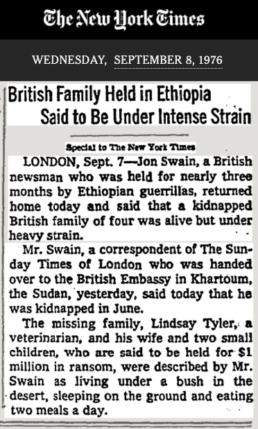
British officials reached out to their TPLF contacts and reported the following:
After meeting in secret with the TPLF rep, the British official notified the Canadians that the rep said unless a ransom was given “Krois would continue to be held to draw attention to the TPLF cause” and that “his group was immune to pressure applied by governments“.
Back in Washington, Secretary Vance emphatically rejected the TPLF ransom demand, and updated his ambassadors in Addis and Khartoum affirming that “there is no question of USG paying ransom and TPLF will only damage its public image by continuing to hold innocents hostage“.
TPLF reps would not budge. They warned a French contact “Krois is well but that he will be kept as long as necessary ‘six months or a year’ to bring western interlocutors to their senses“.
The contact also noted that although a clear ransom demand had not been made yet, “figure being contemplated is thought to be approximately $100,000 or $200,000 in cash“.
TPLF Tries to Indoctrinate Krois’ Wife
Now early one morning, TPLF reps approached a Red Cross official in Khartoum by the name of Fred Isler and demanded that he deliver three letters [4] addressed to Mrs. Beverely Krois (George Krois’ wife in Toronto) to the Canadian embassy to send to Mrs. Krois.
Isler accepted the first two letters which were letters from George to his wife describing his situation, but according to a mid-November cable, “Isler refused to accept a third letter which was a propagandistic explanation from TPLF to Mrs. Krois” justifying Krois’ captivity“.
In the propaganda letter Isler refused, TPLF wrote to Mrs. Krois “the inconvenience of one man for an indefinite period of time” is a worthwhile price to pay for “five million Tigreans”.
They also complained, stating “for the last hundred years the Amhara nation dominated us“.
Though TPLF ultimately pulled back the letters, the gesture presumably was an attempt to demonstrate that they have matured into humane kidnappers. In 1976, a British man kidnapped by the TPLF remarked that he “had to suck water from cactuses to keep going” on a 500 mile march under armed TPLF guards.
Canadians Want UN Involved, Americans Unconvinced
By December, the one month mark of Krois’ abduction had passed. US and Canadian officials were still no closer to securing Krois’ release as when they had started.
The Canadians proposed that the UN Secretary General make a public appeal to the TPLF on humanitarian grounds.

Ambassador Chapin and the Americans were unconvinced arguing “an appeal on humanitarian grounds would, in any case, fall on deaf ears. The TPLF has clearly shown itself to be a politically unsophisticated group, not concerned with the adverse nature of the publicity it might get.”
In Washington, Deputy Secretary of State Warren Christopher had now taken over the Krois’ file. (Christopher would become Secretary of State under Bill Clinton). Christopher was displeased with the Sudanese effort so far and called for more “aggressive” pressure against the Sudanese.
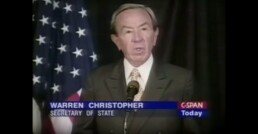
Soon enough, the Sudanese feeling the heat, reassured the US Ambassador in Khartoum that the matter was now personally being handled by Sudanese President Nimeiry and promised renewed pressure would be applied on the TPLF leadership in Khartoum.
Sudanese authorities would then summon TPLF reps in Khartoum. What exactly happened next is unclear. The details of the exchange remain classified. It’s possible the Sudanese threatened the TPLF with expulsion or the Eritreans who had leverage on the TPLF made them fold.
It’s also unclear whether any of the TPLF’s ransom demands were met “under the table” by the Sudanese officials. The Sudanese promised the TPLF a press conference in Khartoum and requested US officials send media reps to the press conference. The US would grudgingly accept.
After more than 2 months of a dizzying diplomatic frenzy and 70 days under TPLF captivity, George Krois’ would finally be a free man on January 9 after the TPLF handed him to Sudanese authorities in Khartoum. A week later he boarded a flight to Toronto and reunited with his wife.

President Nimeiry received a letter of thanks from President Jimmy Carter for his efforts. Carter wrote: “I would like to express my gratitude for your government’s efforts in bringing about the safe release of Mr. George William Krois by the Tigre Peoples Liberation Front“.
Carter Falls, TPLF Terrorism Increases
Only a year later President Jimmy Carter would find himself confronting another hostage crisis, only this time one which he could not keep under wraps and would ultimately take down his Presidency.
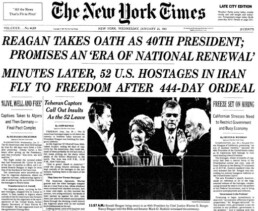
Carter would go down, but TPLF terrorists were just getting started.
TPLF also got its promised press conference with western media and said “they were anxious to call attention of world opinion to plight of Tigrean people who were fighting a fascist government”.
If this language sounds familiar, we don’t need to look further than the recent words coming out of today’s TPLF terrorists who have waged war on the country:
For the George Krois’ kidnapping and more than a dozen other documented acts of international terrorism committed throughout the 70s and 80s, the TPLF found itself listed as a Tier III terrorist organization under United States law.
Yet, despite their rocky beginning, the TPLF and the US would forge a closer relationship in the late 80s. Ethiopia would expell Ambassador Chapin and the Americans in July 1980 and the US wouldn’t regain a foothold in the country until facilitating a TPLF takeover in 1991.
Today, once again, true to its terrorist roots, the TPLF, with American approval, is terrorizing the people of Tigray, Amhara, and Afar regions and holding them hostage while demanding a ransom of more than 100 million Ethiopians.
Notes
1.The US had been aware of efforts to create a “Tigray Liberation Front” at least since April 1975, which is two months after TPLF’s official founding.
2. British Surgeon Lindsey Taylor was on vacation with his wife and his 8 and 5 year old children when TPLF gunmen ambushed his vehicle and kidnapped the family. This story on the Sunday Times recounts this event and also an addition TPLF kidnapping.
3. Incidentally, just like today, in 1977-78 while Ethiopia was preoccupied with war with Somalia, Nimeiry’s troops invaded fertile lands of Ethiopian farmers in Gonder and in later years, according to a statement by the Ethiopian Border Affairs Committee, TPLF leaders promised Neimery that they would abrogate the 1902 Border Treaty if they took power in Ethiopia.
4. Here’s the full content of the TPLF propaganda letter sent to Mrs. Krois.
Share
Ethiopian Geopolitics: An Enigma of International Norms
Month: December 2021
Bethlehem Mehari
International Economics and
Conflict Management
Twitter : @Beth_Mehari
Ethiopia’s reformed leaders, under the headship of Prime Minister Abiy Ahmed, are grappling with the harsh reality of ethnic politics, that is nearly three decades in the making, and a diplomatic stand-still with the Nile’s downstream riparian over its flagship project, the Grand Ethiopian Renaissance Dam (GERD). In an effort to mitigate the Coronavirus pandemic, Ethiopia postponed its 6th General elections from August of 2020 to early June of 2021 and has made significant logistical and security preparations. In rejection of the new timeline, the Tigrean People’s Liberation Front (TPLF), members of the ancéan regime, opted to institute a novel regional election board and subsequently held elections on September 9th of 2020. Labeling the TPLF leadership as rogue militants, the Federal Government was forced into a law and order operation in the Tigray region which has come at a high human cost, infrastructure damage, as well as looting which has left the region in a fragile state of severe food-insecurity. In addition, armed ethnic extremists in parts of Oromia and Benishangul-Gumuz regions continue to harass, expel, as well as kill minority populations which adds to public discontent, further heightening the risk for electoral violence.
In April of 2019, many were quick to praise Ethiopia’s political reform and normalization of relations with the neighboring state of Eritrea, deeming it the conflict-resolution success story of modern history. The Nobel Committee also acknowledged the Prime Minister’s role in expanding political rights and participation through rigorous legislative and institutional reforms. In hindsight, it has become abundantly clear that the cycle of political violence that historically accompanied political transitions in Ethiopia was not avoided, rather, it was delayed. Shortly after the TPLF attack on multiple bases of the Ethiopian National Defense Forces (ENDF) in Tigray- the Prime Minister revealed that, in the backdrop of his Nobel accolade, his safety and that of his family was under threat by the TPLF controlled security apparatus. The start of open hostilities in November of 2020 marked the official end of multiple attempts at mediation. According to a TPLF spokesperson, Sekko Ture, the TPLF indeed declared a preemptive attack on Ethiopia’s Northern Command, likening the assault on sleeping service members to a lightning strike.
Seeing that the Ethiopian Army has left its post due to the abrupt start of hostilities in Tigray, Sudanese forces moved to occupy large swaths of land in the disputed al-Fashaga territory. Sudan’s move not only violates Ethiopia’s territorial integrity but also risks derailing decades of work to arrive at a peaceful resolution through existing regional mechanisms. Though Ethiopia was quick to denounce the move as an opportunistic land-grab, Sudan barely received the proverbial slap on the wrist from the European Union, the United States, and the United Nations organs. As Ethiopia juggles between these domestic and regional challenges, international and non-government organizations, along with friends and allies of Ethiopia were quick to offer prescriptive measures to both the potential insurgency in Tigray as well as GERD negotiations. However, the response of the United States, the European Union, international media houses (both private and state-affiliated), have largely been reactionary and inconsistent with customary international law. The principle of sovereign equality of nations detailed in the Article 2 of the United Nations Charter, a cornerstone for the conduct of nations vis-à-vis international organs, all member states,“… shall refrain in their international relations from the threat or use of force against the territorial integrity or political independence of any state, or in any other manner inconsistent with the Purposes of the United Nations.[1]” Sudan has instead doubled down on its military actions with identitarian claims of the resident population of the disputed area. Despite multiple protestations by Ethiopian officials, the deafening silence from the international community has emboldened Sudan to make further claims on swaths of Benishangul-Gumuz where the Grand Ethiopian Renaissance Dam is, rather conveniently, located.
With the recent memory of Myanmar’s hostile military takedown of the civilian government, it is highly unusual that the United States and the European Union would opt to liaise with Sudan’s military leadership, particularly during a rapidly escalating border dispute with Ethiopia. Although the United States asserts its commitment to working with the civilian-led government, the increased isolation of Prime Minister Hamdok in domestic and regional affairs indicates the contrary. Having had its own attempted insurrection in January, the United States has persistently called on the Ethiopian Government to negotiate with its own insurrectionists so as to avert further casualties. In an interview with Foreign Policy, the new US envoy to the Horn of Africa Jeffery Feltman expressed concern that Ethiopia may be headed toward a path of disintegration, likening Ethiopia’s current trajectory to that of Syria. Setting aside the envoy’s outlook of Ethiopian affairs through a Middle East lens, the concerted effort at normalizing and rehabilitating the TPLF’s public image has angered Ethiopian officials as well as the larger public. In addition to Mr. Feltman who eulogized the late Prime Minister Meles Zenawi, a core member of TPLF’s central committee, current and former officials like Susan Rice, Michelle Bachelet, Karen Bass continue to exploit existing ethnic cleavages and muddying the waters by perpetuating a narrative of an ethnically-motivated government-response; some even demanding the withdrawal of regional forces fighting alongside the ENDF.
Many in the international community have adopted a unitary strategy of pressuring the Ethiopian government to act against its national interest in both the trilateral GERD talks and the turmoil in Tigray. Prominent global players, international media and humanitarian agencies included have largely been fanning the flames of ethic-contention, and clear favoritism in horn affairs, making evident that international norms have increasingly become subject to interpretation and selective application. After multiple rounds of failed negotiations, and President Trump’s withholding of aid and threats that “Egypt will have to bomb the dam,” it is evident that Ethiopia’s downstream counterparts were in search of formidable intermediaries who can coerce Ethiopia into a binding agreement, making all future projects on the Abbay River contingent on Egypt’s blessing. This begs the question: is the goal of these talks to subdue Ethiopia’s real developmental concerns in favor of the status-quo? Egypt’s unrelenting threat of “unimaginable chaos” to the horn and Sudan’s continued encroachment into disputed territories undercuts the international community’s continued call for a diplomatic solution; in reality, defiance is rewarded with silence, or worse- distortion. It is crucial that Ethiopia be considered an equal and autonomous stakeholder with its regional partners, and although the Horn’s latest envoy does not believe the GERD dispute to be “inherently irreconcilable,” this sentiment alone does little to restore hope that the United States can be an honest broker.
Studies have shown water to be a key factor in 45 current conflicts and is predicted to be a major cause of conflict and displacement in the foreseeable future. With the worsening trend of global water security, a thorough consideration for the concerns and vulnerabilities of all parties is crucial in reaching a collaborative and mutually beneficial outcome. It is for this reason that all parties need not approach the issue as a play of great powers at tipping the scale. The European Union, United Nations organs, as well as the United States must endeavor to encourage the current African Union led process so as to expand the proverbial pie, instead of bickering over the crumbs.
Share
The Elephant in The Room: What is behind the stalled GERD Negotiation and how should it move forward?
Month: December 2021
Dr. Tirusew Asefa
Dr. Tirusew Asefa is a registered professional engineer with the State of Florida, a Diplomate of the American Academy of Water Resources Engineers, and a Fellow of the American Society of Civil Engineers. He currently chairs Florida Water and Climate Alliance.
Email : mululove@yahoo.com
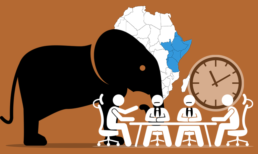
Every roadblock in the tripartite negotiation between Egypt, Ethiopia, and the Sudan leads to one issue: Nile water use allocation. Both Egypt and Sudan are adamant on showing even a hint of flexibility, sticking to their proposition in the 1959 colonial agreement between the two countries that granted them 100% utilization of the Nile water. Dr. Salman M.A. Salman, an expert in water and law and Editor-in-Chief of Brill Research Perspectives in International Water Law, sees the problem with this agreement starting from its title which says “…full utilization of the Nile.” This is at the expense of the rest of the Nile basin countries who are responsible for the “full” supply of the Nile water. Even more so at the expense of Ethiopia who generates 86% of the total Nile flow. Ethiopia finds its zero percent water allocation as a nonstarter no matter how it is packaged: whether it is called “benefit sharing,” “extended drought release” “existing water use,” or “an existential threat caused by any reduction.”
A recent weASPiRE webinar that I hosted among four international experts on water, economic, law, and policy raised this very problem as a core issue for stalled negotiating between the three countries.
As it stands, both Egypt and Sudan are insisting on a “binding agreement” before Ethiopia starts the second year of the Grand Ethiopian Renaissance Dam (GERD) filling at 13.5 BCM this summer. This filling is part of the GERD construction that was agreed upon by the three countries making it almost impossible not to hold water because of its link with construction of the central block of the dam. Once the central block of the dam is raised, more water will be coming into the GERD during the summer rain that can not get “unheld.” The issue is not whether there is enough water in the basin this summer (given that the High Aswan Dam’s current level is still at 20-year high and river flow is projected to be at an above average flow condition); it is rather how the operation of the GERD would look like in the future. The ultimate goal seems to be to impose a “binding” zero allocation to Ethiopia.
Should the GERD filling agreement be decoupled from long-term operation?
There are many independent experts including the European Union that found it problematic to push for a “binding agreement” for the GERD’s operation as Egypt and Sudan are insisting without addressing the underlying water allocation issue. For example, the EU while supporting the African Union’s (AU’s) leadership notes the first filling can be addressed to everyone’s satisfaction and adds “the operations after the filling need further discussions to reach a water sharing arrangements, as occurs in all river basins.”
This is the same sticky situation that resulted in a no-solution agreement by the so-called US-World Bank mediation back in the fall of 2019. In that draft document, Egypt asked for a “binding” release scenario that effectively cuts the GERD’s ability to produce power by one-third and greatly diminishes the chances of filling the dam. Dr. Salman sees this as the single most critical issue that has been in discussion between the three countries for more than a decade with no breakthrough yet. He says, “you can do the filling and operation [discussion]… and at the same time… raise the issue of water allocation.” Dr. Marc Jeuland, a professor at Sanford School of Public Policy, sees the water sharing issue as a prerequisite to get to a permanent binding water release agreement during the GERD operation. Without acknowledging and figuring that out, it will be difficult to get to a place that is acceptable by all parties. The water sharing issue of who gets how much is a key way to get out of this stalled negotiation. Dr. Jeuland asks whether you need the water rights to be cleared to devise a long-term operation strategy. He thinks you do. “There needs to be some discussions about what those rights are,” he stated.
Who is responsible for drought management?
One of the contended points in the negotiations between Egypt and Ethiopia is the priority of dam filling between the High Aswan Dam (HAD) and the GERD after an extended drought. Egypt insists Ethiopia should release a certain amount of flow beyond what Ethiopia has already committed, which is the flow that would have occurred without the GERD, plus additional storage. Egypt insists these releases should be in place regardless of changes in future hydrologic conditions (including potential flow changes because of climate change or upstream water use) effectively putting the task of water supply during periods of drought and its management solely on Ethiopia. Ethiopia says it is not responsible for all the problems that could be created by mother nature. A complicating factor is the lack of a water sharing agreement that could be executed during this kind of scenario which would enable Ethiopia to use its share to fill its dam in a future scenario.
Dr. Upmanu Lall, who is the director of Columbia Water Center at Columbia University, says that is exactly the issue, “in the absence of a sharing agreement, how do you actually bring these [countries] to the table? You can spend years negotiating an agreement and the terms of that agreement would have to include every contingency with regards to different kinds of drought. That’s a nonstarter in a way.” Many observers point to the lack of Egypt’s willingness to the use of alternative water sources during drought time as well. During such extreme cases, for example, Egypt could tap into its vast groundwater sources or diversify its resources by tapping into desalinated water which over the years has come to be much cheaper than what it was just a decade ago. Framing the solution for all water shortage in Egypt to surface water coming from Ethiopian highlands misses what water resources managers could do to manage extremes droughts, specifically conjunctive water use. “It is not like as soon as there is less water, there is no option anymore. There are options. Maybe tapping groundwater that you don’t typically use could be the solution during this extreme drought,” says Dr. Jeuland.
There is also a creative solution in terms of insurance instruments that could come into play to tackle unforeseen extreme drought situations according to Dr. Lall. Our experience shows the so-called VarQ operating regime in the Columbia River agreement between the US and Canada can be used as an example where additional drought-time release deemed necessary and may not be part of the initial agreement can be accommodated. In such instances the dam owner could be compensated to operate in a way that can help downstream countries overcome unexpected circumstances. Questions that can be considered are: “If you think that [drought] is a shared risk, in terms of securitization strategy how much money would you like to receive if the flow drops below a certain level and how much are you willing to pay for it?” This approach could be one way to manage extreme droughts that have a small chance of occurring but can have serious consequences. “Both Egypt and Ethiopia can then independently decide for themselves and negotiate the terms of the insurance” adds Lall. But a successful application of such an approach would depend, again, on prior water sharing agreement among Nile basin countries, which is non-existent today.
Do Egypt, Ethiopia and Sudan need more mediators to get to a solution?
Recently Sudan proposed to add more mediators to the tripartite negotiation. This includes the United Nations, European Union, and the USA, in addition to the African Union which currently leads the effort. It is to be noted that the last time a third party tried to mediate between these countries (US/World Bank), they ended up writing what many call a one-sided draft document that was thought to be heavily tilted towards Egypt. The former US Ambassador to Ethiopia, Mr. David H. Shinn said at the time “the United States seems to be putting its thumb on the scale in favor of Egypt.” Ethiopia walked out of that negotiation. There are many who say the role of a third-party facilitator is to provide ideas, data, new ways of framing the issue, and knowledge from similar experiences outside the present matter that enable the parties to sustain engagement and eventually reach an agreement. Other than that, the parties must come to agreement by themselves. That is the only way toward sustained solution. Prof. van der Zaag, of IHE Delft in the Netherlands, cautioned against approaches that involve outsiders which may result in direct conflict to the stakeholders’ benefits, lack a local perspective, and may even be against the parties’ interest. Under such a scenario, he says, “donors become part [of the problem] and add more complexity. You cannot, as an outsider, make parties agree.” This is a similar sentiment reflected by Dr. Salman, stressing “the presence of more than one mediator could end up being a complicating factor [rather] than facilitating one.”
Where do we go from here?
One thing that is clear from my panelists is there is a way forward that could potentially be a win-win solution. But some parties may need “out of the box” thinking and have a willingness to see the big picture with regards to what works for all countries in the region. “The most important thing is to focus on what a joint vision of the future looks like, a positive vision that you would like to achieve across these countries and [figuring out] how the water story fits into that rather than driving from how do we negotiate the water” first, says Dr. Lall. Concentrating on what each country gains rather than what it perceives to be losing is another way to look at it according to Salman. He says “They need to try to find out first what can Egypt get out of this dam, what can Sudan get out of this dam. Concentrate on that. Build on that. Strengthen that and it will be a major step in helping the mediating effort.”
The key to achieving collaboration among these countries, according to Jeuland, is “depoliticization” of the whole process to get to a cooperative framework. He also sees that concentrating on institutions and trust to generate this mutual benefit are more important than cubic meters of water. There is ample evidence from around the world where this resulted in positive outcomes rather than conflicts. Dr. van der Zaag advises this discussion needs to take out the emotion including reporting by journalists who tend to sensationalize things as no one chooses their neighbors. These countries will be living together and need to think about the next generation to get the best out of the resources they have.
The message is that there is more to gain by all three countries through cooperation than concentrating on a single country’s benefit.
A starter will be acknowledging the share and the right of utilization of the Nile water by both upper and lower riparian basin countries. Every challenge to the negotiation between the tripartite states so far leads to one problem: water allocation. While the Egyptians say it is not about water allocation and just about the GERD, the elephant in the room is a water allocation issue that needs to be addressed to get to a permanent “binding” agreement which everyone will be happy to accept.
Share
ከጎረቤት አገራት ጋር የሚደረጉ የጋራ ዲፕሎማሲ ፍሬዎች ውጤት
Month: December 2021
መሐመድ አል-አሩሲ
የኢትዮጵያ ፓርላማ አባል
Twitter : @Alarusi1
በአገሮች መካከል ያለውን ዲፕሎማሲያዊ ግንኙነት ስናሰላስል የዲፕሎማሲያዊ ግንኙነቶችን ኮምፓስ መቆጣጠር የሚቻልባቸው መንገዶች ማኅበራዊና ሕዝባዊ ግንኙነቶች መሆናቸውን ብዙ ጊዜ እናስተውላለን። ምንም እንኳን ዲፕሎማሲ የሀገራት መመዘኛ እና መልካም ስም መለኪያ ቢሆንም በዋናነት ህዝቦች ትክክለኛ ሚዛን እና ተቆጣጣሪ ተደርገው ይወሰዳሉ። ዲፕሎማሲ የተለያዩ ፅንሰ- ሀሳቦች ሲኖሩት አንዳንዶቹ ኦፊሴላዊ ሲሆኑ አንዳንዶቹ ደግሞ ህዝባዊ ናቸው ዛሬ የኢትዮጵያ፣ የግብፅ እና የሱዳን የሶስትዮሽ ግንኙነቶችን ለማንሳት እንሞክራለን።
ሦስቱ አገሮች በየደረጃው እያዩዋቸው ካሉት ለውጦች አንፃር በመካከላቸው ያለውን ዲፕሎማሲያዊ ግንኙነት ወደ ኋላ መለስ ብሎ፣ ገለልተኛ በመሆን ጥልቅ የሆነ ዲፕሎማሲያዊ ማሰላሰል ይጠይቃል። በጂኦግራፊያዊ አቀማመጥ ጎረቤት የሆኑት ሶስቱ ሀገራት የተለያዩ ግንኙነቶች እንዲኖራቸው አድርጓል እነዚህም ግንኙነቶች በዲፕሎማሲ ክትትል እና ጥበቃ ስር ይተዳደራሉ። ይህ በመካከላቸው ያለው ጉርብትና በሶስቱ ሀገራት ላይ በአዎንታዊም ሆነ በአሉታዊ መልኩ ተፅዕኖ ሊያሳድር ችሏል።
እነዚህ ሀገራት ሆን ብለውም ይሁን ባለማወቅ የእር በርስ ግንኙነታቸውን ለማጠናከር እና ለማሻሻል ብለው በሚያደርጓቸው ጥረቶች የሚጠብቁትን ውጤት ላያገኙ ይችላሉ! ቁም ነገሩ እነዚህ ውጤቶች ለምን ሆኑ ሳይሆን የዚህ ሁሉ ጥረት ዋና አላማ ጥሩ ውጤት በመጠበቅ እንደሆነ ማወቅ ነው ብየ አምናለሁ። በሰው ልጆች መካከል ያለው ልዩነት ተፈጥሮአዊ ነገር ነው። አለማችን በውስጧ ባሉ ነገሮች መካከል ልዩነቶች አሉ ስለዚህም የተለያዩ ቅርጾች፣ ቀለሞች፣ ሀሳቦች፣ እምነቶች፣ ወዘተ… ይገኙባታል። ልዩነታኝንን ለአለማችን እንደተሰጠ ስጦታ አድርገን ስናየው እና ሁሉም ከስጦታው የድርሻውን የወሰደ መሆኑን ስንገነዘብ ውበት ይሆናል።
እዚህ ላይ ሊነሳ የሚገባው ጥያቄ፡- በኢትዮጵያ፣ በግብፅና በሱዳን መካከል ያለው ልዩነት ወደ እውነተኛ አለመግባባት ተቀይሯል ወይንስ አሁንም ለሦስቱ አገሮች በሚስማማ መልኩ መቆጣጠር የሚቻል ነው? ዋናው ችግር አለመግባባታችን እንጂ ልዩነታችን እንዳልሆነ ይታወቃል። ምናልባት በእነዚህ አገሮች መካከል ያለውን ታሪካዊ የዲፕሎማሲያዊ ግንኙነቶችን ለመተረክ ግዜ ባይኖረንም ሦስቱን ሕዝቦች በሁሉም መስክ ከሚያቀራርቡ ትስስሮች መካከር የተወሰነ ልንወስድ እንችላለን።
እዚህ ላይ ሊነሳ የሚገባው ጥያቄ፡- በኢትዮጵያ፣ በግብፅና በሱዳን መካከል ያለው ልዩነት ወደ እውነተኛ አለመግባባት ተቀይሯል
ወይንስ አሁንም ለሦስቱ አገሮች በሚስማማ መልኩ መቆጣጠር የሚቻል ነው?
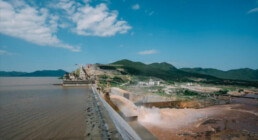
እናም የእነዚህን ሀገራት ማህበራዊ ትስስር ስናሰላስል የጋራ ትስስር አጠቃላይ እይታ እንዲሁም በመካከላቸው ያለው የዲፕሎማሲያዊ ወይም ሌላ ግንኙነቶች ተፅእኖ ምክንያቶችን መለየት እንችላለን። በሶስቱ ህዝቦች መካከል ያለው ማህበራዊ፣ ሕዝባዊ፣ ኢኮኖሚያዊ እና ሌሎች ግንኙነቶች ምን እንደሚመስሉ ለታዛቢዎች የተደበቀ አይደለም፣ ምንም እንኳን በብዙ ጉዳዮች ላይ ውጥረት የበዛበት ዲፕሎማሲያዊ ግንኙነት ቢኖርም ፣ይህም በበርካታ የጋራ ማህደሮች መካከል በተፈጠረው አለመግባባት መሆኑን ደርሰንበታል።
ሆኖም የአንዳንድ ጉዳዮች ክምችት ይህን አለመግባባት በአስደንጋጭ መልኩ እንዲያድግ ቢያደርግም እና የተወሰነ ተፅኖ ቢኖረውም በሶስቱ ሀገራት ህዝቦች መካከል ካለው ጠንካራ ግንኙነት እና ህዝባዊ ትስስር አንፃር ደካማ እንደሆነ ምንም ጥርጥር የለውም።
የሶስቱ ሀገራት ዲፕሎማሲ በብዙ ለውጦች እና ፈተናዎች እንዳለፈ ታሪክ ዘግቦታል። በተለያዩ ጊዜያት ከባድ የሆኑ ችግሮች ቢኖሩም ትስስሩ የሚያደርገውን የህልውና ትግሉ ላይ ያለውን ፅናት ልናይ ችለናል።
አገራችን እየገነባችው ያለው የህዳሴ ግድብ ለረጅም ጊዜ ያለመግባባት ምንጭ ነበር ይህም ፋይል በእኛ ጊዜ የአፍሪካ ትእይንት ርዕስ ለመሆን በቅቷል:: የህዳሴው ግድብ ችግር መሰረቱ እና ውስብስብነቱ ከታሪክ ባይደበቅም ነገርግን በዚህ ፅሁፌ ላይ በልማት፣ በብልጽግና የተሞላ አዲስ ጎህ እንዲወለድ እና የተስፋ ሻማ እንድናበራ በማሰብ እንዲሁም ፍትህ፣ ሰላም እና መልካም ጉርብትና በውዷ አህጉራችን እንዲስፉፉ ካለኝ ፍላጎት አለመግባባታችንን የተረሳ ታሪክ ማድረግን መርጫለሁ። እንደ እኔ እይታ በአፍሪካ ቀንድ እየተከሰቱ ካሉት ፈጣን ክስተቶች የዚያ አካባቢ ህዝቦች ህጋዊ ምኞታቸውንና አላማቸውን የሚያሟላ ብሩህ የወደፊት ተስፋ እንዳላቸው እርግጠኛ ነኝ።
በነዚህ ትልቅ ምኞቶች መጠን ተግዳሮቶቹ እየበዙ መጥተዋል። የታላቁ የሀበሻ ሕዝብ ምን ያህል ብዙ ችግሮችን እንዳሳለፈ ታሪክ ቢዘግብም ነገር ግን ባጠቃላይ የኢትዮጵያውያን እና የአፍሪካውያንን ለውጥ እና እድገት ሊፈጥር ችሏል። አንዳንድ ጎረቤት አገሮች ከኢትዮጵያ ጋር ለረጂም ግዜ አብሮ ለመስራት የሚያስችል የሰለጠነ እና መልካም የሆነ ግንኙነት መፍጠር እየቻሉ ኢፍትሐዊ ታሪክ በመጠቀም ፖሊሲያቸውንና እድገታቸውን ኢትዮጵያን ወደኋላ በማስቀረት ላይ የተመሰረት አድርገዋል።
የታላቁ ህዳሴ ግድብ ፕሮጀክትን አንዳንዶች በተለያየ መንገዶች ለማደናቀፍ እና ለማስቆም ብዙ ጥረቶኝ ቢያደርጉም ነገር ግን ይህን የኢትዮጵያ አገራዊ ህዳሴ ጉዞ ለመቀጠል የተነሳ ቆራጥ መሪ እንዳለን የዘመናችን ታሪክ አስፍኖታል። ይህም መሪ የኖቤል የሰላም ሽልማት ባለቤት የሆኑት ክቡር የኢትዮጵያ ጠቅላይ ሚኒስትር ዶ/ር አብይ አህመድ ናቸው። ምናልባት አንዳንዶች ይህ ሽልማት የተሰጠውን ሰላም በማስጠበቅ ስም የኢትዮጵያን መብት አሳልፎ እንዲሰጥ ነው ብለው ያምኑ ነበር።
እንዲሁም የኢትዮጵያን ሉዓላዊነት፣ ክብርና ህጋዊ ህዳሴ ለመናድ ነው ብለው ያስቡ ነበር!
አንዳንዶችም የውጭ አካላትን አጀንዳዎች ለማሳካት በኢትዮጵያ የውስጥ ጉዳይ ጣልቃ ለመግባት እና የህዝቡን ፍላጎት ለመቆጣጠር በሽልማቱ ጫና ለማድረግ ያስቡ ነበር።
ኢትዮጵያን ፊት ለፊት የመጋፈጥ ሞራል እና ድፍረት እንደሌላቸው ስለሚያውቁ ተላላኪዎችን እና ከጠባብ ጥቅሞቻቸው ጀርባ የሚሹ የሀገርንና የመብት ጥቅምን ቅንጣት ታክል ግምት የማይሰጡ አካላትን እየተጠቀሙ ይገኛሉ።
ነገር ግን እንደ ክቡር ዶ/ር አብይ አህመድ ፍልስፍና ለዚህ ክብር ሽልማት ተገቢ ባለቤት ለመሆን እውነተኛ ሰላም ያስፈልጋል። ያንን ሰላም፣ ፍትህና ሁለንተናዊ እድገት ለማስመዝገብ ፅናትንና ቁርጠኝነትን መጠቀም አጥብቆ ይጠይቃል! ስለዚህም የህዳሴውን ግድብ አስመልክቶ የኢትዮጵያ አገራዊ ጉዞ የጀመረው ከአቻቸው የተከበሩ የግብፅ ፕሬዝዳንት አብዱልፈታህ አል-ሲሲ ፈገግ ብለው ባቀረቡት ከባድ የሆነ ቃለ መሃላ የመፈፀም ጥያቄ ምላሽ በመስጠት ነው።
ይህ የሆነበት ምክንያት የግብፅና የሱዳን ወንድሞች ከጠየቁት አስገዳጅ ስምምነት በላይ በፈጣሪ ስም ቃል ኪዳን መግባት የበለጠ ከባድ እና አስገዳጅ ነው ተብሎ ይታመናል።
አሁንም አገራችንና አመራራችን ከወንድሞቻችን ጋር ያለጥፋትና ጉዳት እንዲሁም ያለቸልተኝነትና ያለማጋነን በመልካም ዓላማና ጉርብትና መስራትን አደራ እንላለን።
እናም በዚህ ቃለ መሃላ ይዘት ላይ በኢትዮጵያ ጠቅላይ ሚኒስትር ሕሊና ውስጥ ከተመሠረተው መተማመን እንዲሁም ለግብፅ ወንድሞች ካላቸው እምነት እና በጎ አስተሳሰብ ያለምንም ማመንታት እና በሙሉ እርግጠኝነት መሐላ መስጠቱ ምንም አልከበዳቸውም። የግብፅ ፕሬዝደንት እና ታዳሚው የተደሰቱበት ቃለ መሃላ የኢትዮጵያ ጠቅላይ ሚኒስትር ንግግራቸውን በሰላምታ እና ለሁሉም ተሰብሳቢዎች መልካም ምኞት የተመኙበት እንዲሁም መልካም ጉርብትና እንደሚቀጥሉ እና በግብፅ ላይ ምንም አይነት ጉዳት ለማድረስ ፍላጎት አለመኖሩን ያካተተ ነበር።
ይህ ብቻ አይደለም ክቡር የግብፅ ፕሬዝዳንት ማንንም ሳይጠይቁ ቃለ መሃላ ለመፈጸም ያላቸውን ተነሳሽነታቸውን በመግለጽ እንዲሁም ለመተባበርና የሁለትዮሽ ግንኙነታቸውን ለማጎልበት ቃል ገብተው ለኢትዮጵያ ፕሬዝዳንት እና ለኢትዮጵያ ህዝብ እናንተም ከግብፆችም መልካምን ነገር ያያሉ በፈጣሪ እምላለሁ፣ በፈጣሪ እምላለሁ፣ መቸም አንጎዳችሁም በማለት ንግግራቸውን ጨረሱ::
የዚያን ጊዜ ህዝቦች ለአስርት አመታት ውስብስብ ሆኖ የቆየውን የተራዘመ ቀውስ በተመለከተ ከዚህ ግንዛቤ በኋላ እፎይ ብለው ተነፈሱ::
የሁለቱ መሪዎች ቃለ መሃላ ምንም አይነት ትንተና ሳንተነትን፣ ቀውሱ በጉዳዩ ላይ የጣለው ነገር ከጊዜ በኋላ ለሁላችንም የሚያረጋግጠው ነገር በሀገራችን ላይ በድብቅም ሆነ በአደባባይ የተነደፉት አጀንዳዎች አንዳንዶች በጊዜያዊነት ከሚያሳዩት መልካም ስነ ምግባር እጅግ ያለፈ እንደሆነ እና ሌላ ጥቁር ድብቅ ዓላማዎችን ለማሳካት እንደሚጠቀሙበት ልናይ ችለናል:: አሁን የጠቀስናቸው አካላት የኢትዮጵያን አንድነት፣ መረጋጋትና ብልፅግና እንደግፋለን እያሉ ነገር ግን በተመሳሳይ መልኩ በውስጥ ጉዳዮቿ ውስጥ ጣልቃ ለመግባት እና የማዳከም እንዲሁም ቀጠናውን ለማራበሽ ኢትዮጵያን መከፋፈል ዓላማ በማድረግ ማዕቀብ የሚጥሉ ናቸው::
በሱዳን ያሉ ወንድሞቻችን ለሶስቱ ህዝቦችና ለመንግስቶቻቸው መልካም ነገር ከማያስቡ ሁለት ፊት ካላቸው የተለያዩ አካላት ላይ ያላቸው አቋም ፅኑ እና ግልፅ አልነበረም:: ኢትዮጵያ በወንድም ሀገር ሱዳን ውስጥ በወቅቱ ሀገሪቱን በወረረ ግጭት ሰላም ፈጣሪ ነበረች። አገራችን አንዳንድ የሱዳን ግለሰቦች በያዙት ተቀያያሪ አቋም ላይ ምንም ትኩረት አልሰጠችም ነበር። የአቋሞቻቸው መጋጨት የሚያሳየው እነዚህ አመለካከቶች በስነምግባር ኬላ ሳያልፍ ሆን ተብሎ ወደ ሱዳን የገባ እንደሆነ ምንም ጥርጥር እንደሌለው ያረጋግጣል።
አሁንም በሶስቱ ህዝቦች መካከል በመልካም ጉርብትና መርሆች ላይ በተመሰረተ በጋራ ትብብር፣ በሶስቱ ሀገራት የውስጥ ጉዳይ ጣልቃ ገብነት ሳይኖር እንዲሁም እነዚያን ህዝቦችን ለሚወክሉ ሚድያዎች ተገቢውን ክትትል በማድረግ በጠንካራ መሰረት ላይ እንደገና በማጤን እና በመገምገም ግንኙነታቸውን ለማሻሻል እድሉ አለ።
ይህንንና ሌሎች በቀጠናው ውስጥ ያሉ ቀውሶችን ለመፍታት የተተወው የድርድር ጠረጴዛ ቁልፍ ይሆናል ብለን እናምናለን። በመጠባበቅ ላይ ያለው የህዳሴ ግድብ ድርድር ፈታኝ እየሆነ

መጥቷል ይህም በብዙ ምክንያቶች የተወከለው ነው። በተለይም፡-
- የሚቲወቁም ሆነ የማይታወቁ አካላት በህዝቦች መካከል በፈጠሩት ግጭት
- የአመለካከቶች እና የአቋሞች ለውጥ
- የሌላውን ተደራዳሪ አካል አቋም ግምት ውስጥ ያላስገቡ ጥያቄዎች መጠየቅ
- በተደራዳሪዎች ላይ የውሸት ቅድመ-ግምቶች እና የተሳሳቱ ትርጓሜዎች እና ትንታኔዎች መስጠት
- ዓላማዎች አስቀድመው ሳይወስኑ ድርድሩ ላይ ግትር መሆን
- ሚዲያዎችን እና ዲፕሎማሲዎችን አሉታዊ እና አሳፋሪ በሆነ መንገድ በመጠቀም ድርድሩን ለማበላሸት እና በድርድሩ ላይ ባሉ ወገኖች ላይ ጫና ለመፍጠር መሞከር ናቸው።
በመጨረሻም ኢትዮጵያ በግብፅ እና በሱዳን ወንድሞቿ ላይ ያላትን በጎ አመለካከት ለአለም እያሳየች እና እያስመሰከረች ያለች ሲሆን፤ ለችግሩ መፍትሄ በመፈለግ ረገድ ድሮም ሆነ አሁን እያደረገችው ያለ እንቅስቃሴ በፍትህ አይን ለሚያይ ግልፅ ነዉ። በዚህ ረገድ በሀገሪቱ ውስጥ ያለው የበላይ አመራሮች ከችግር ጊዜ ጀምሮ እስከ ዛሬ ድረስ የሰጡትን መግለጫዎች መመልከት ይችላሉ። ከዚያም በኋላ ተፉሰስ ሀገራት መግለጫዎች ጋር በማነፃፀር ብዙ ነገር መረዳት ይቻላል። አሁንም አገራችንና አመራራችን ከወንድሞቻችን ጋር ያለጥፋትና ጉዳት እንዲሁም ያለቸልተኝነትና ያለማጋነን በመልካም ዓላማና ጉርብትና መስራትን አደራ እንላለን። ቁም ነገሩ ቀውሶቻችንን መሻገሪያ መንገድ አድርገን ወደፊት መራመድ እንጅ አንድኛችን አንድኛችን ላይ አሸናፊ መሆኑ አይደለም።

